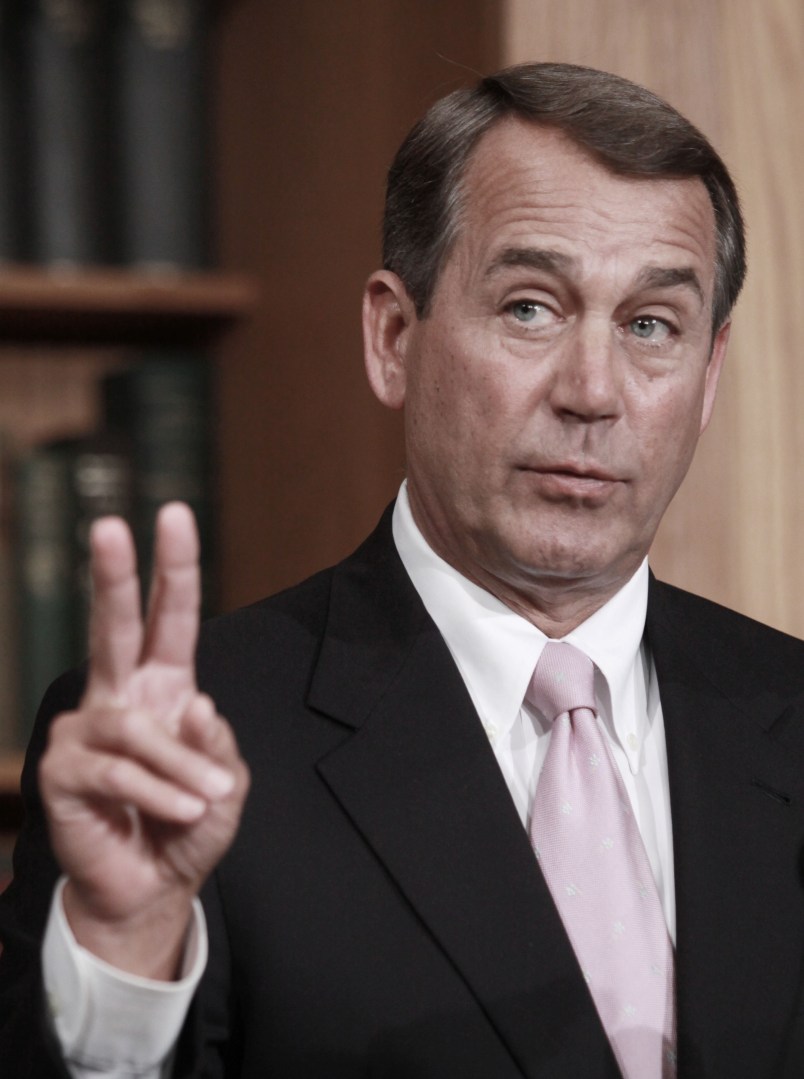Earlier this week, a spokesman for House Minority Leader John Boehner made a prediction. The Republican health care plan, he said, “will cover millions more Americans” than the Democrats’ plan. Bold. But here’s what the experts say:
By 2019, CBO and JCT estimate, the number of nonelderly people without health insurance would be reduced by about 3 million relative to current law, leaving about 52 million nonelderly residents uninsured. The share of legal nonelderly residents with insurance coverage in 2019 would be about 83 percent, roughly in line with the current share.
Oops. You can read the entire analysis here (PDF).
To Boehner’s dismay, the GOP bill was leaked to the media earlier this week, and quickly became a focus of derision for experts and activists who noted that, among other failings, the bill didn’t include some of the most popular insurance regulations in the Democrats’ bill, including a ban on pre-existing condition discrimination.
What else does CBO find?
Though some consumers would find their premiums reduced modestly, “in the large group market, which represents nearly 80 percent of total private premiums, the amendment would lower average insurance premiums in 2016 by zero to 3 percent compared with amounts under current law, according to CBO’s estimates. The figures are presented for 2016 as an illustrative example.”
The GOP bill does require less new government spending, but that’s what you get when you don’t insure anybody. And though it does reduce the deficit, it does so by billions less than the Democrats’ bill does.










